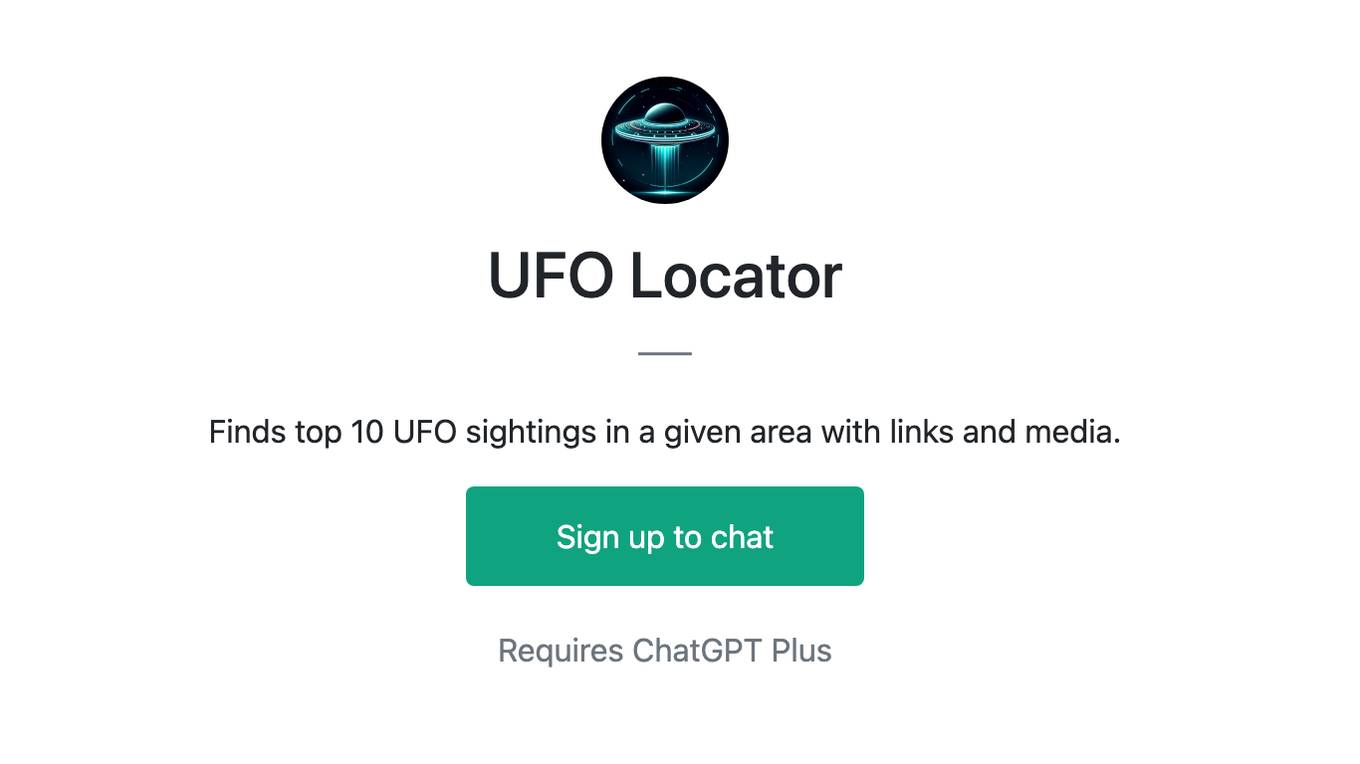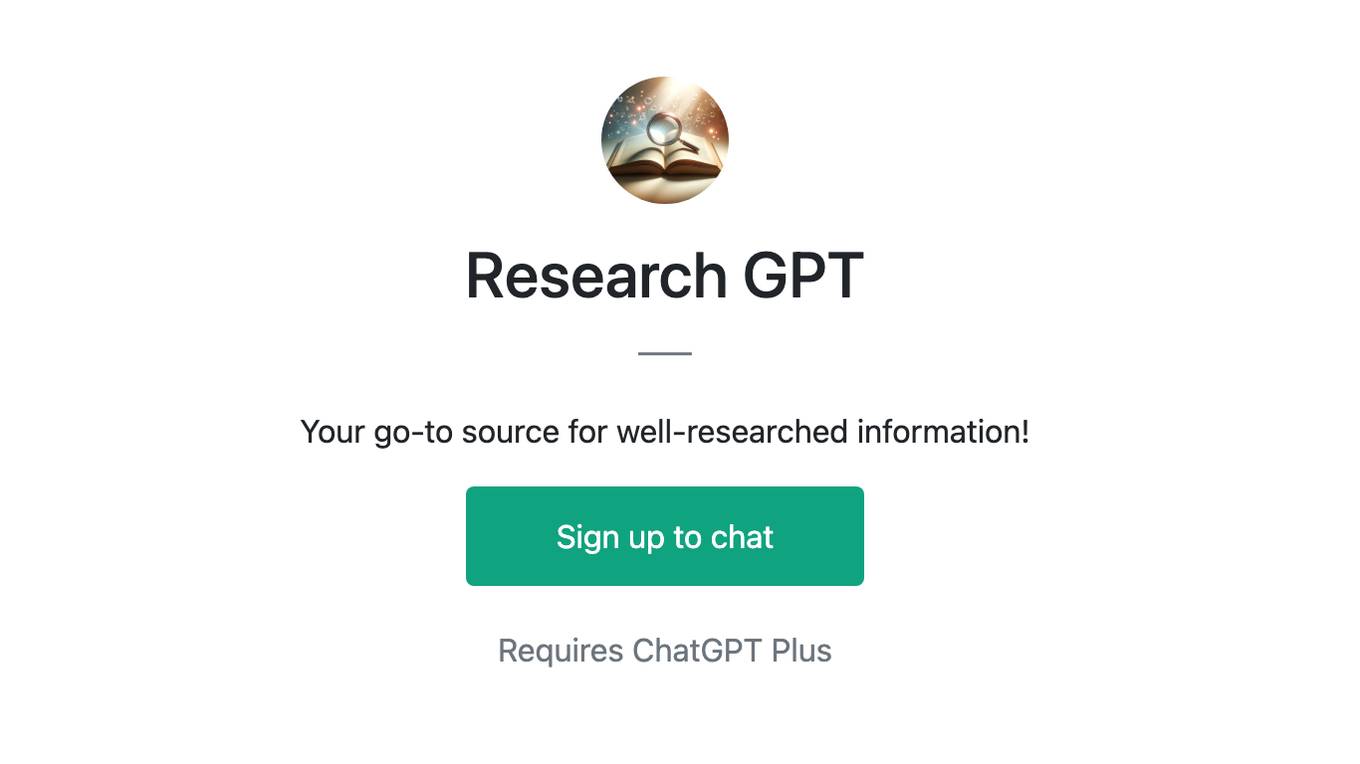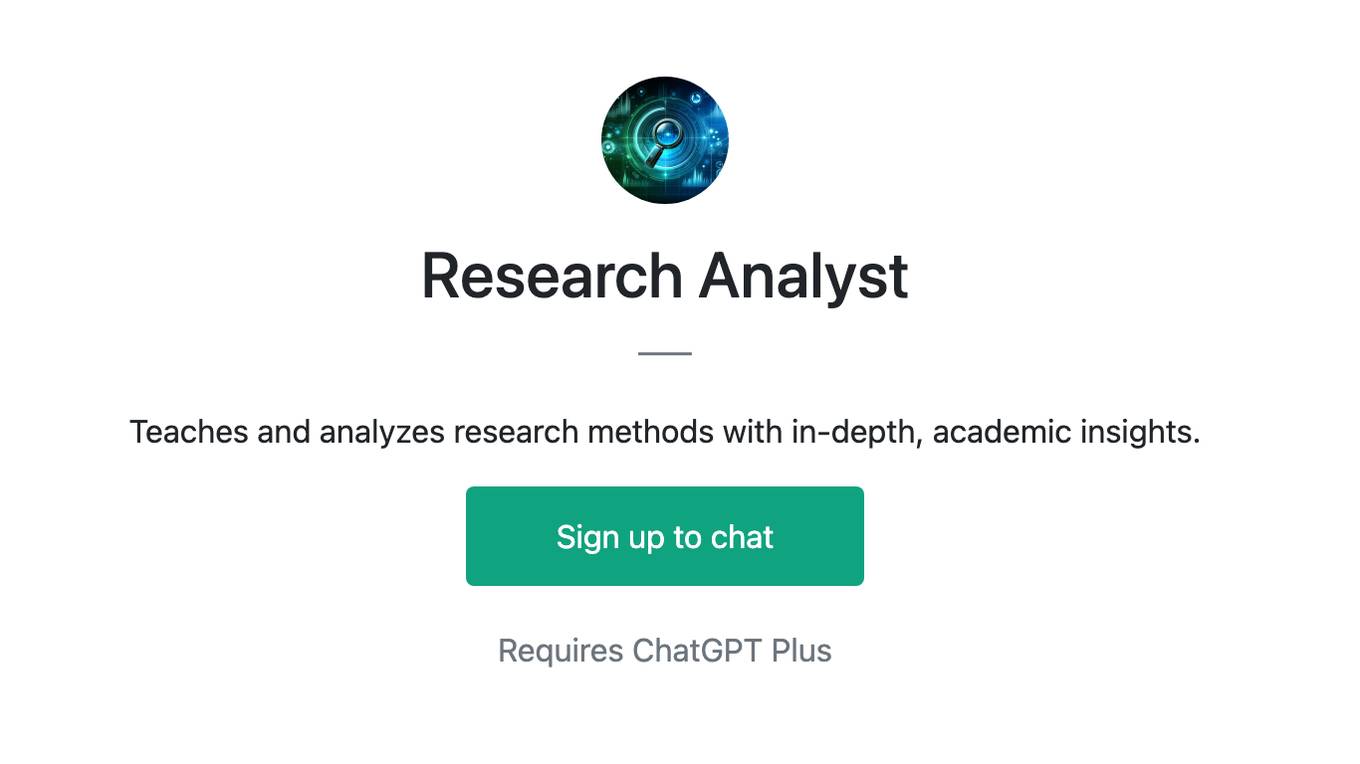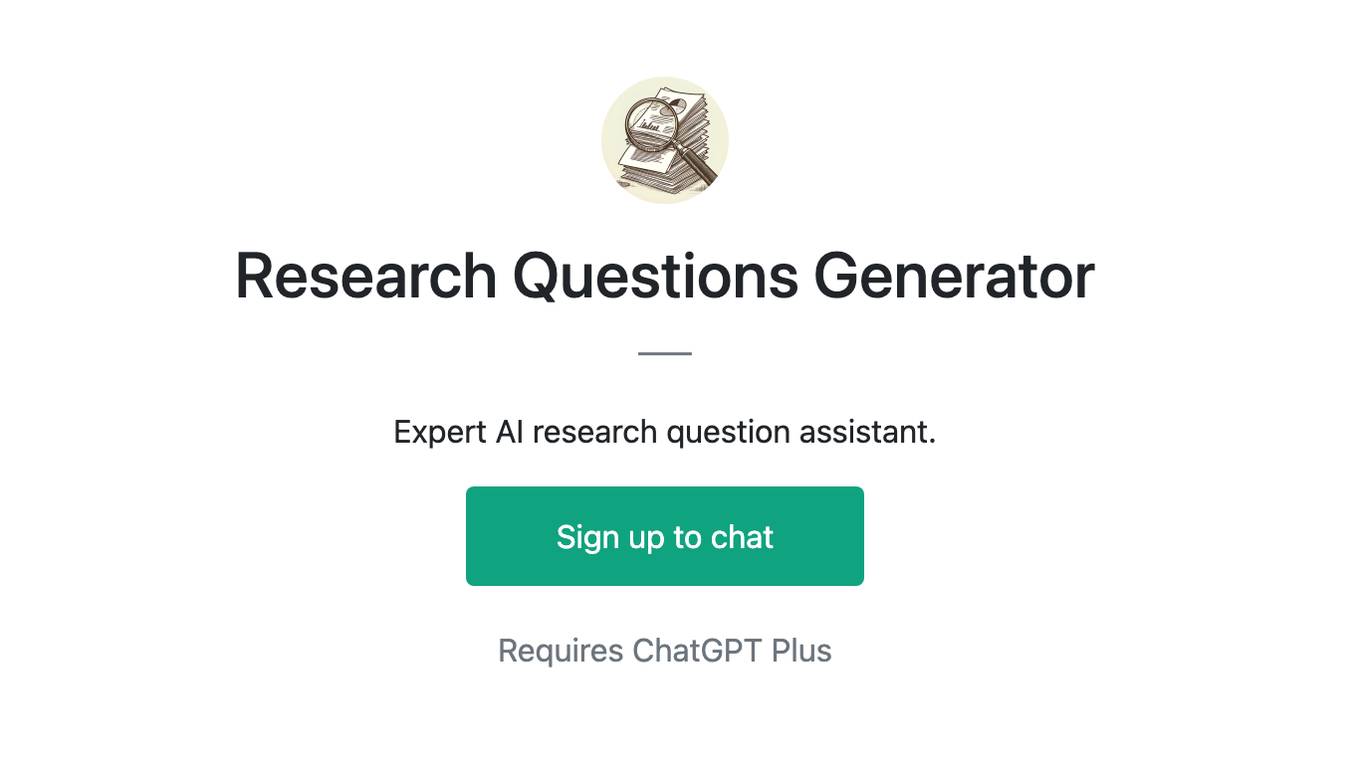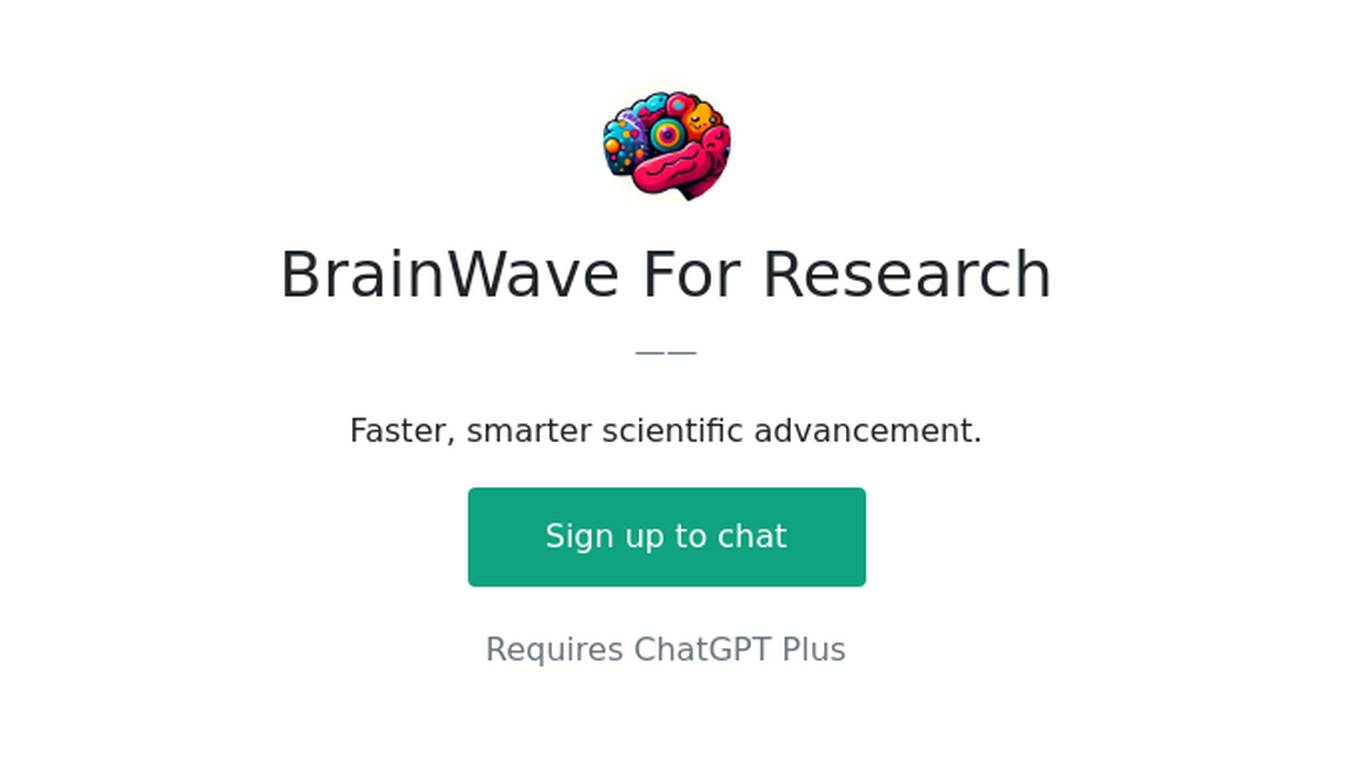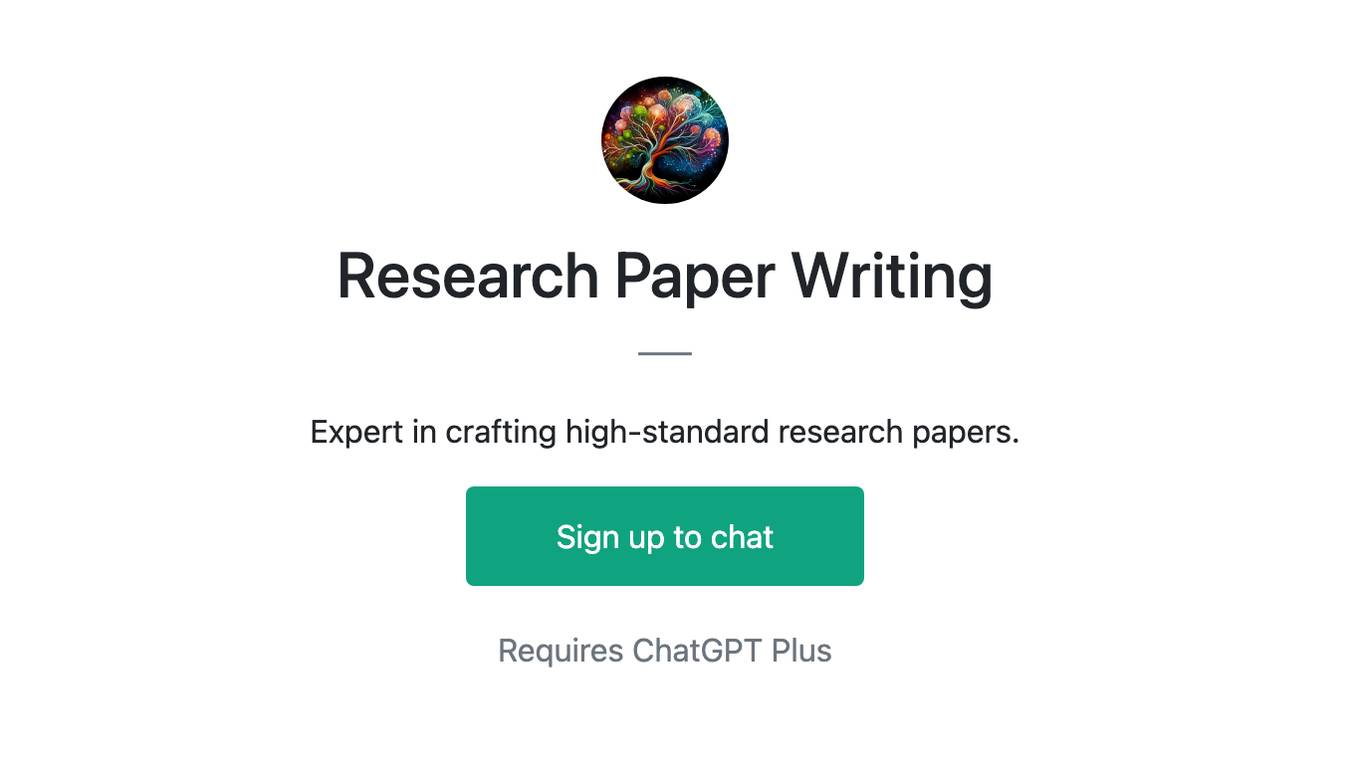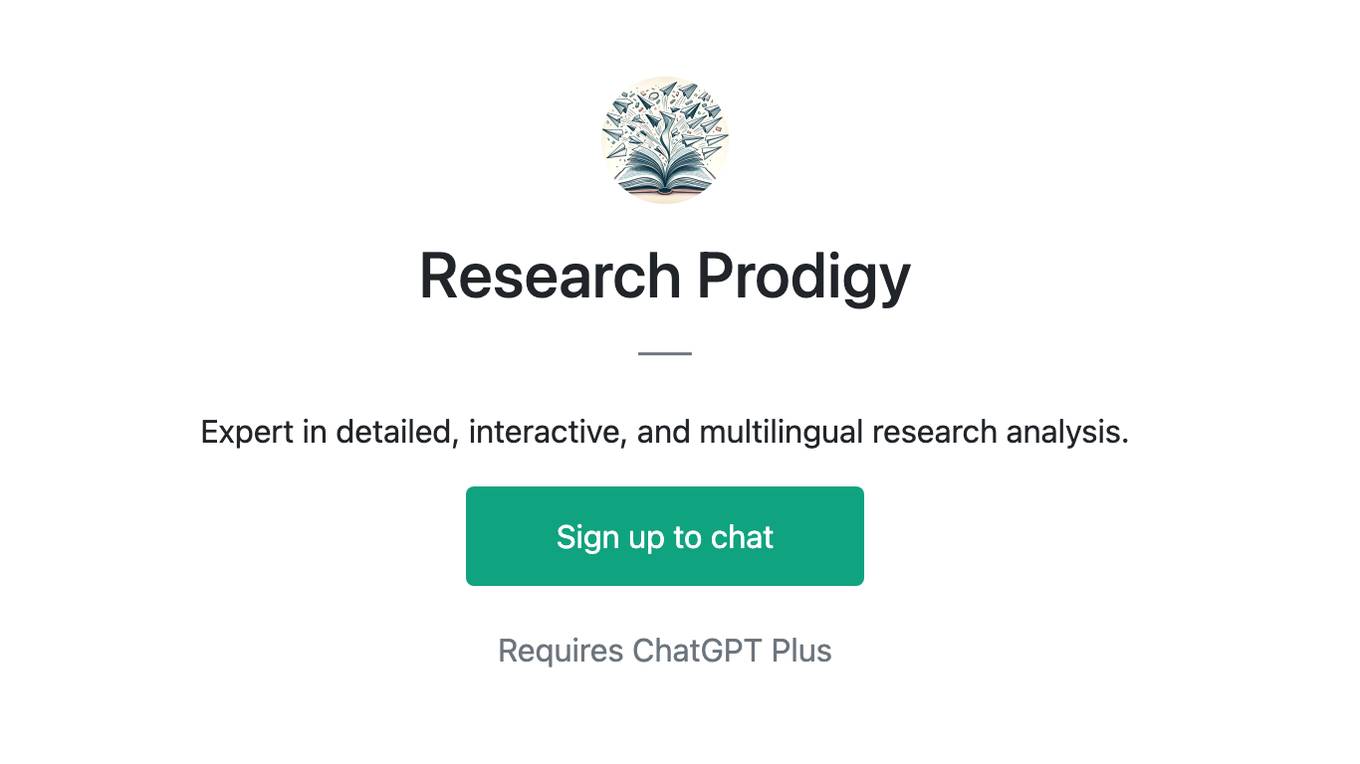Best AI tools for< Research Locations >
20 - AI tool Sites
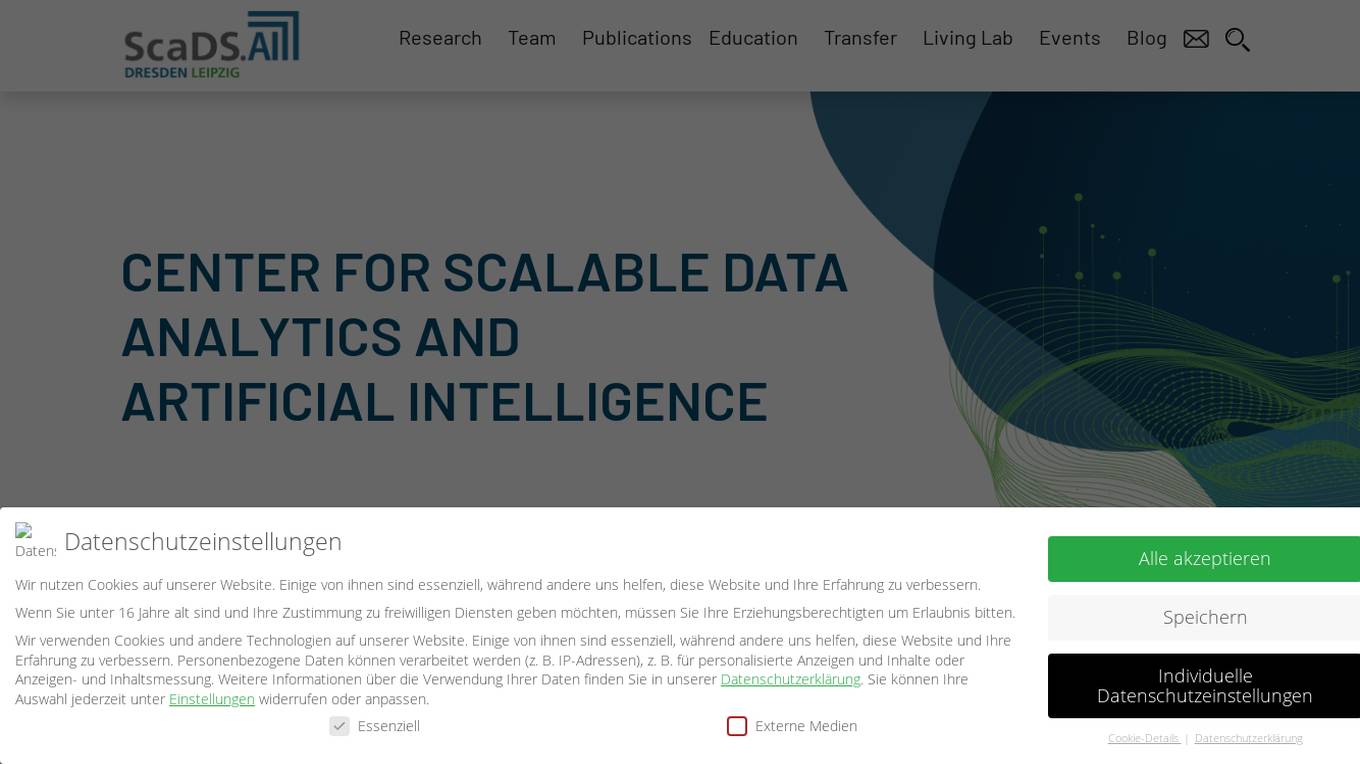
ScaDS.AI
ScaDS.AI (Center for Scalable Data Analytics and Artificial Intelligence) is a research center focusing on Data Science, Artificial Intelligence, and Big Data with locations in Dresden and Leipzig. It is one of the five new AI centers in Germany funded under the federal government's AI strategy by the Federal Ministry of Education and Research and the Free State of Saxony. The center collaborates closely with TUD Dresden University of Technology and Leipzig University, aiming to bridge the gap between mass data utilization, knowledge management, and advanced AI methods.

Picarta AI
Picarta AI is an image geolocalization solution that uses artificial intelligence to find where a photo has been taken in the world. By uploading a photo, users can get the GPS location, latitude, longitude, time stamp, and camera details of the image. Picarta AI also offers a map view of the image location and allows users to download the map. The company's vision is to empower individuals and businesses with the most accurate and reliable image geolocalization solution, unlocking new possibilities for exploration, research, and decision-making.
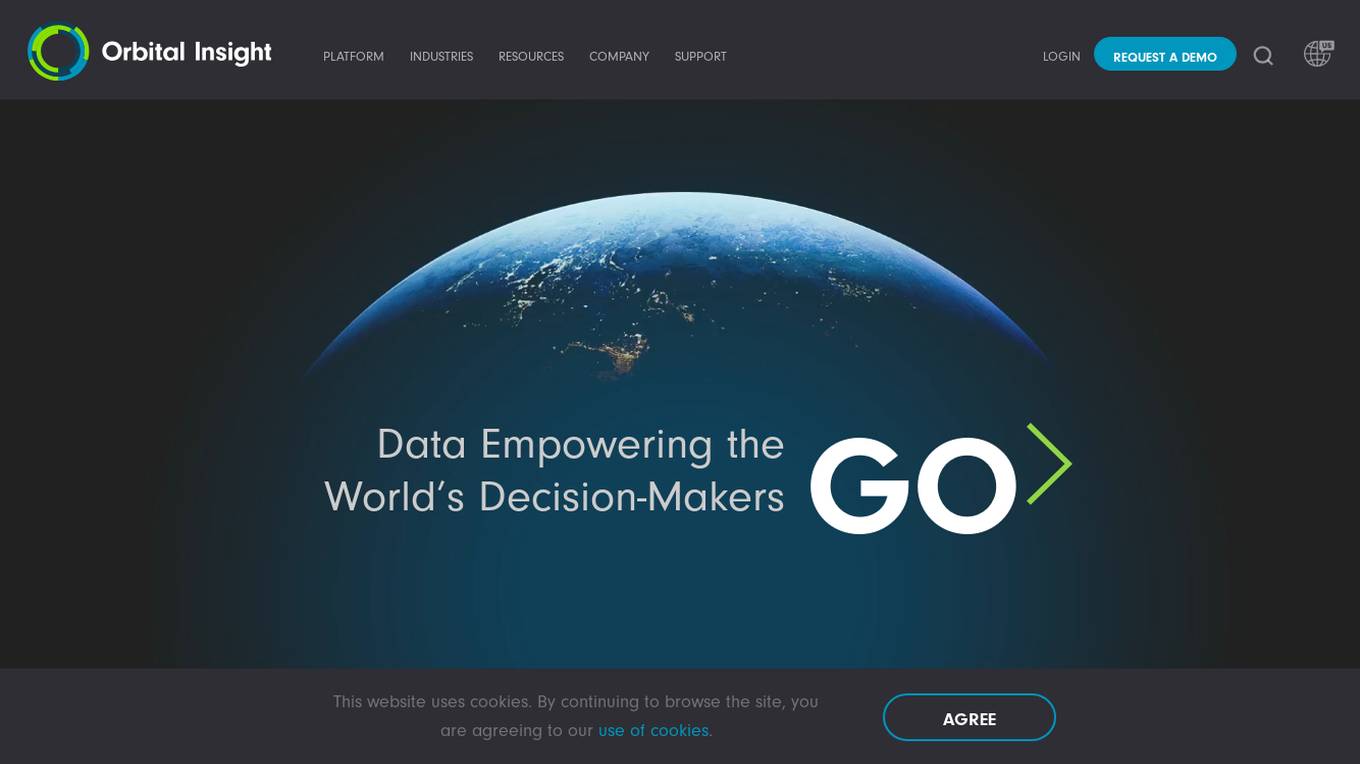
Orbital Insight GO Platform
Orbital Insight is a leading geospatial data analytics platform that provides users with the ability to query the world with three basic parameters: WHAT type of activity? WHERE on earth? WHEN? The platform automates the most difficult steps of deriving insights, allowing you to answer many challenging geospatial questions. Orbital Insight's GO platform is designed for enterprise collaboration and transforms multiple geospatial data sources to accelerate and streamline team member's research, reporting, due diligence, and more.
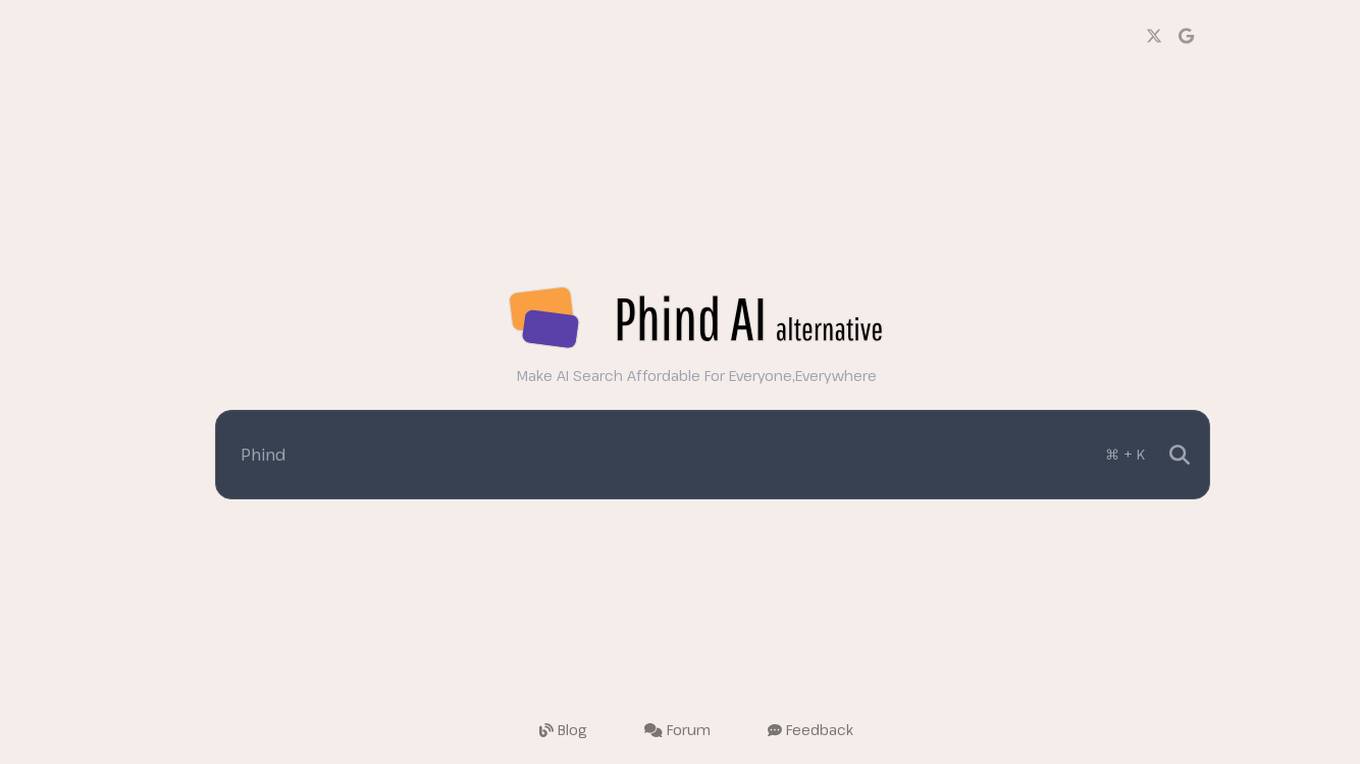
Phind AI
Phind AI is a cost-effective alternative to other AI search engines, making AI search accessible to everyone, regardless of location. It offers a comprehensive search experience with a user-friendly interface and advanced features.
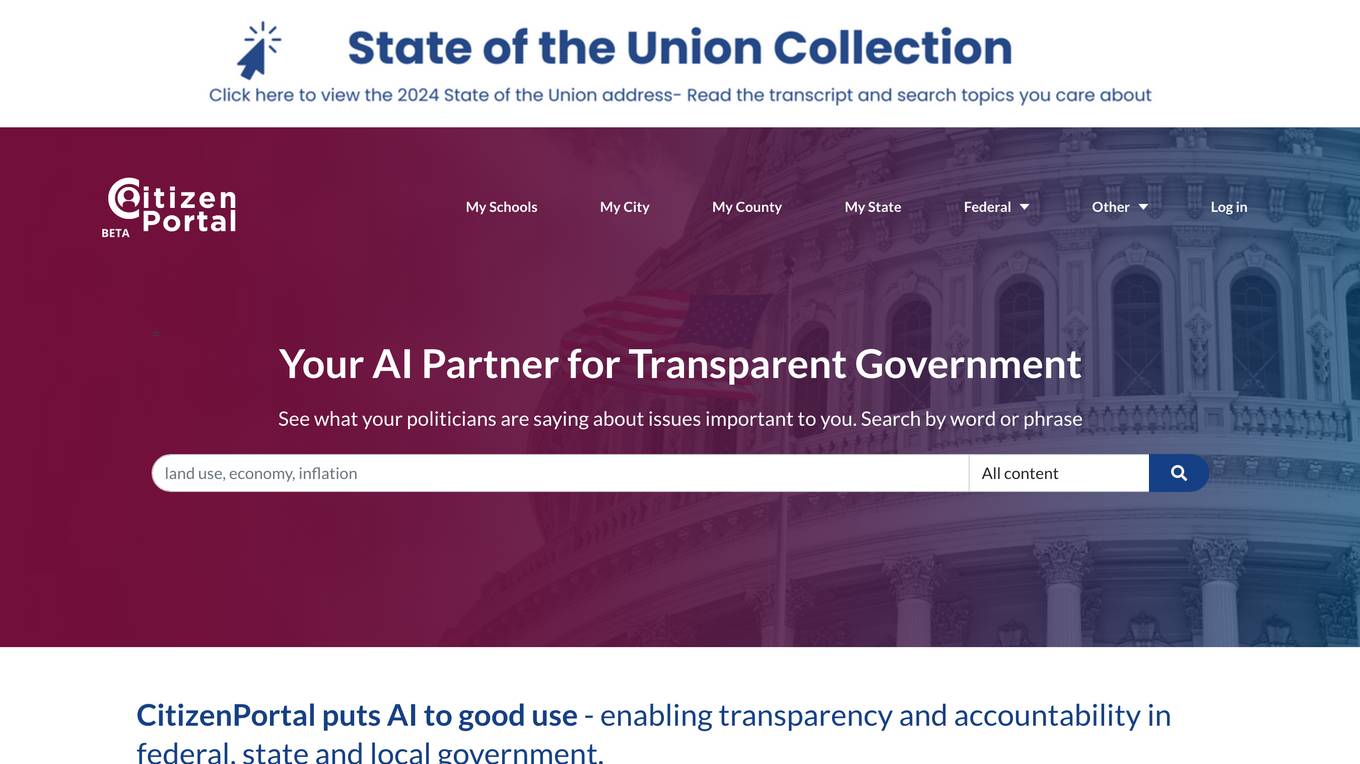
CitizenPortal.ai
CitizenPortal.ai is a comprehensive online platform designed for informed citizens to access a wide range of government-related information and resources. The website offers a user-friendly interface for users to search and browse through various documents, including Congressional Hearings, Executive Orders, Federalist Papers, Supreme Court cases, State of the Union addresses, and NASA information. CitizenPortal.ai aims to empower citizens with knowledge and facilitate their engagement with local government, schools, city, county, and state matters. The platform also provides a collection of news from official government sources and offers options for users to filter content based on different criteria such as location, time frame, and content type.

DagsHub
DagsHub is an open source data science collaboration platform that helps AI teams build better models and manage data projects. It provides a central location for data, code, experiments, and models, making it easy for teams to collaborate and track their progress. DagsHub also integrates with a variety of popular data science tools and frameworks, making it a powerful tool for data scientists and machine learning engineers.

Casc
Casc is an AI-powered knowledge management tool that helps teams access and share information quickly and easily. It integrates with popular collaboration tools like Slack, Google Drive, and Confluence, allowing users to search and access documents, images, and other content from a central location. Casc also uses natural language processing to understand user queries and deliver precise answers, making it easy for teams to find the information they need without having to spend hours searching through multiple sources.

Personalized.energy
Personalized.energy is an AI-powered online platform that offers personalized electricity plans tailored to individual needs and lifestyles. The platform simplifies the process of finding the best energy solutions by utilizing an AI-powered search engine to compare and match users with the most suitable plans based on their location and usage profile. By eliminating the need for manual research and comparison, Personalized.energy aims to provide a stress-free experience for users looking to navigate the complexities of the energy market.

Google Research
Google Research is a leading research organization focusing on advancing science and artificial intelligence. They conduct research in various domains such as AI/ML foundations, responsible human-centric technology, science & societal impact, computing paradigms, and algorithms & optimization. Google Research aims to create an environment for diverse research across different time scales and levels of risk, driving advancements in computer science through fundamental and applied research. They publish hundreds of research papers annually, collaborate with the academic community, and work on projects that impact technology used by billions of people worldwide.

Google Research
Google Research is a team of scientists and engineers working on a wide range of topics in computer science, including artificial intelligence, machine learning, and quantum computing. Our mission is to advance the state of the art in these fields and to develop new technologies that can benefit society. We publish hundreds of research papers each year and collaborate with researchers from around the world. Our work has led to the development of many new products and services, including Google Search, Google Translate, and Google Maps.
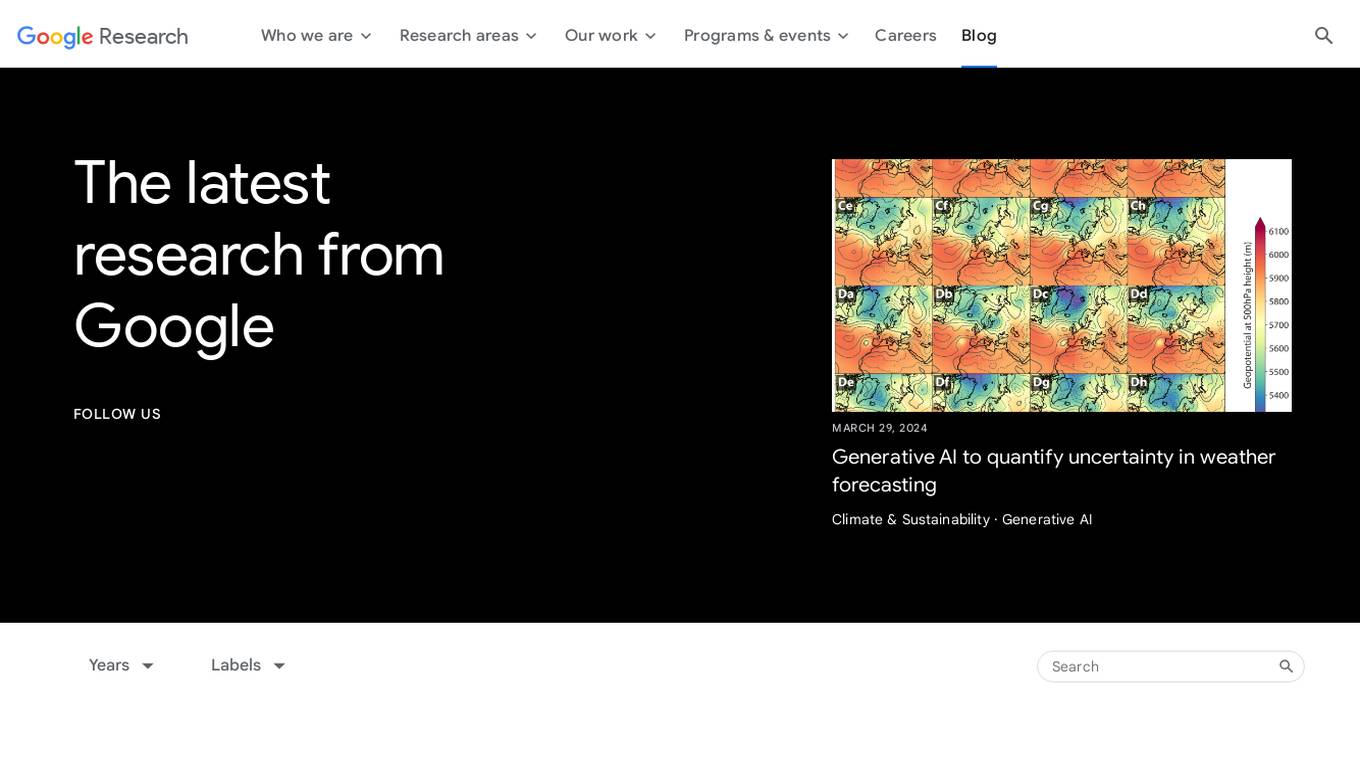
Google Research Blog
The Google Research Blog is a platform for researchers at Google to share their latest work in artificial intelligence, machine learning, and other related fields. The blog covers a wide range of topics, from theoretical research to practical applications. The goal of the blog is to provide a forum for researchers to share their ideas and findings, and to foster collaboration between researchers at Google and around the world.
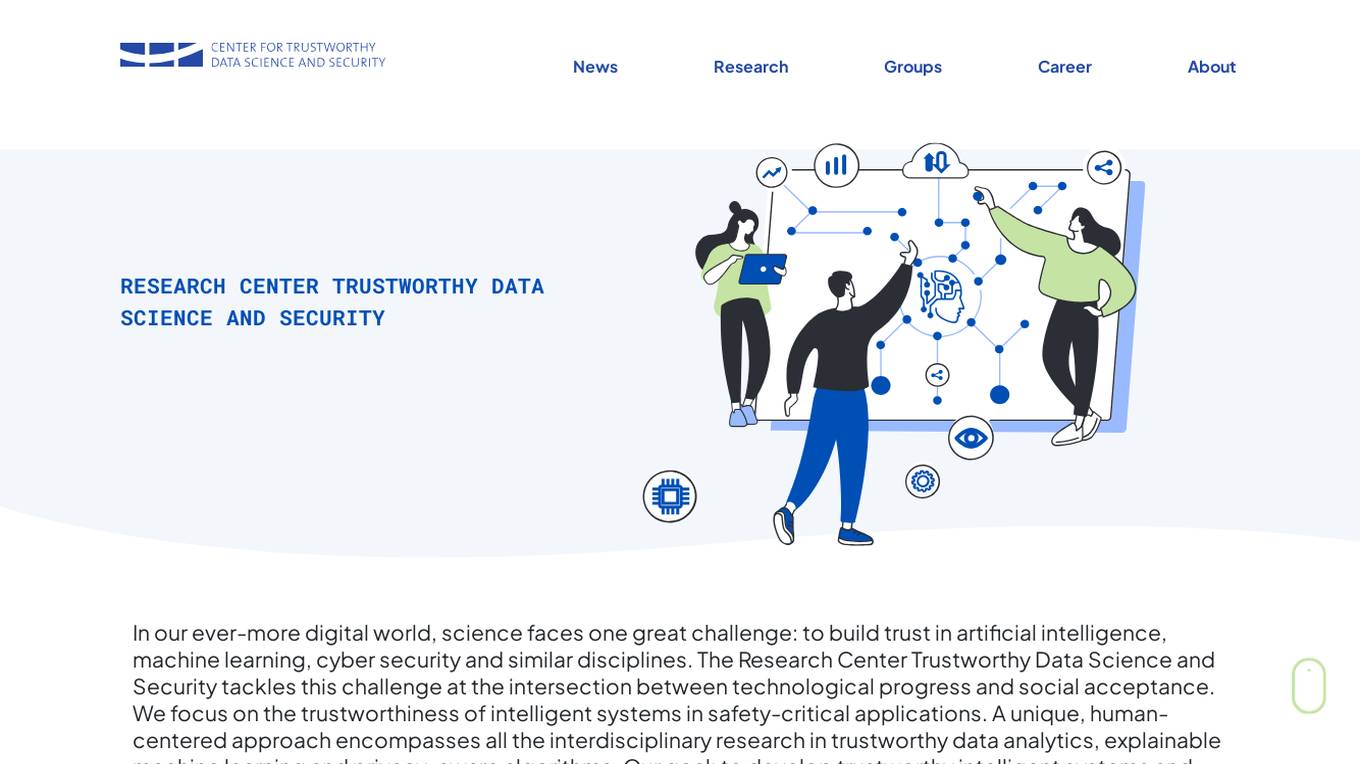
Research Center Trustworthy Data Science and Security
The Research Center Trustworthy Data Science and Security is a hub for interdisciplinary research focusing on building trust in artificial intelligence, machine learning, and cyber security. The center aims to develop trustworthy intelligent systems through research in trustworthy data analytics, explainable machine learning, and privacy-aware algorithms. By addressing the intersection of technological progress and social acceptance, the center seeks to enable private citizens to understand and trust technology in safety-critical applications.

Research Studio
Research Studio is a next-level UX research tool that helps you streamline your user research with AI-enhanced analysis. Whether you're a freelance UX designer, user researcher, or agency, Research Studio can help you get the insights you need to make better decisions about your products and services.
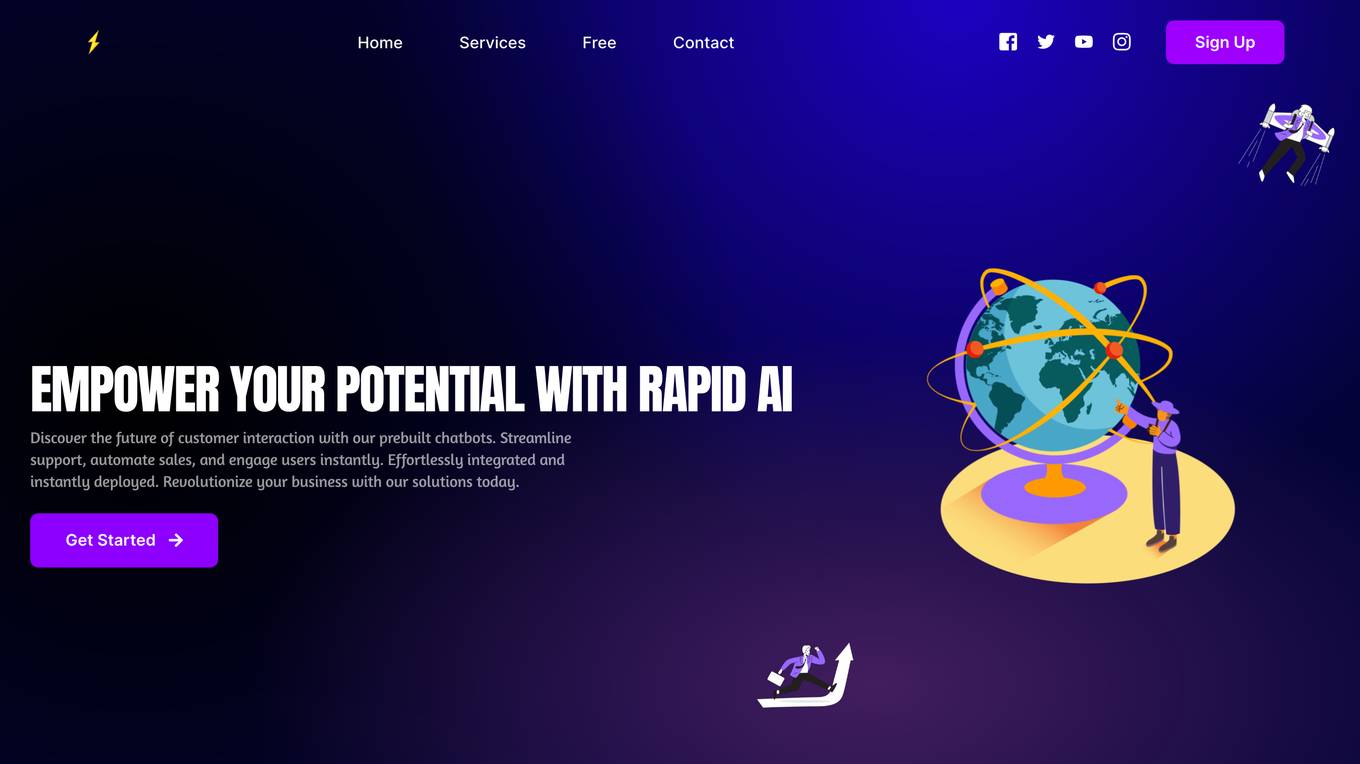
RapidAI Research Institute
RapidAI Research Institute is an academic institution under the RapidAI open-source organization, a non-enterprise academic institution. It serves as a platform for academic research and collaboration, providing opportunities for aspiring researchers to publish papers and engage in scholarly activities. The institute offers mentorship programs and benefits for members, including access to resources such as internet connectivity, GPU configurations, and storage space. The management team consists of esteemed professionals in the field, ensuring a conducive environment for academic growth and development.
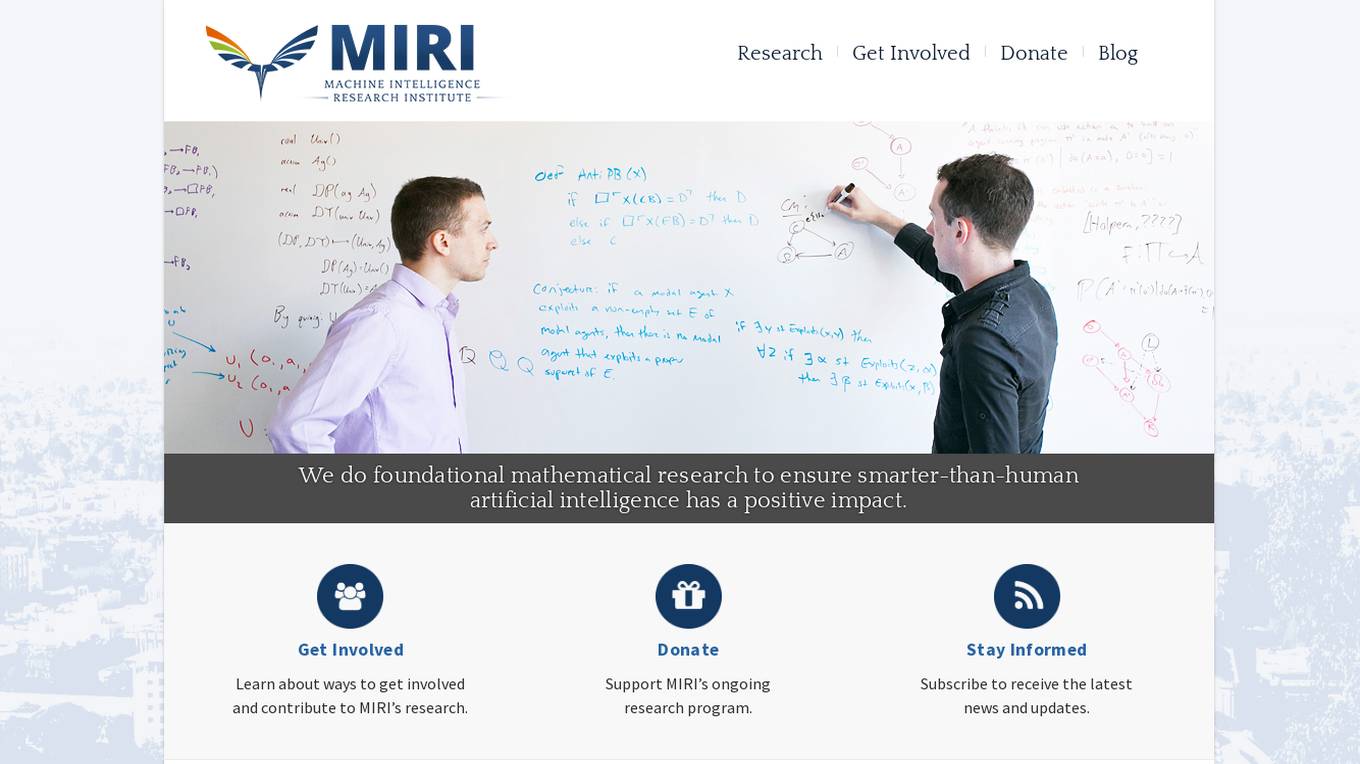
MIRI (Machine Intelligence Research Institute)
MIRI (Machine Intelligence Research Institute) is a non-profit research organization dedicated to ensuring that artificial intelligence has a positive impact on humanity. MIRI conducts foundational mathematical research on topics such as decision theory, game theory, and reinforcement learning, with the goal of developing new insights into how to build safe and beneficial AI systems.
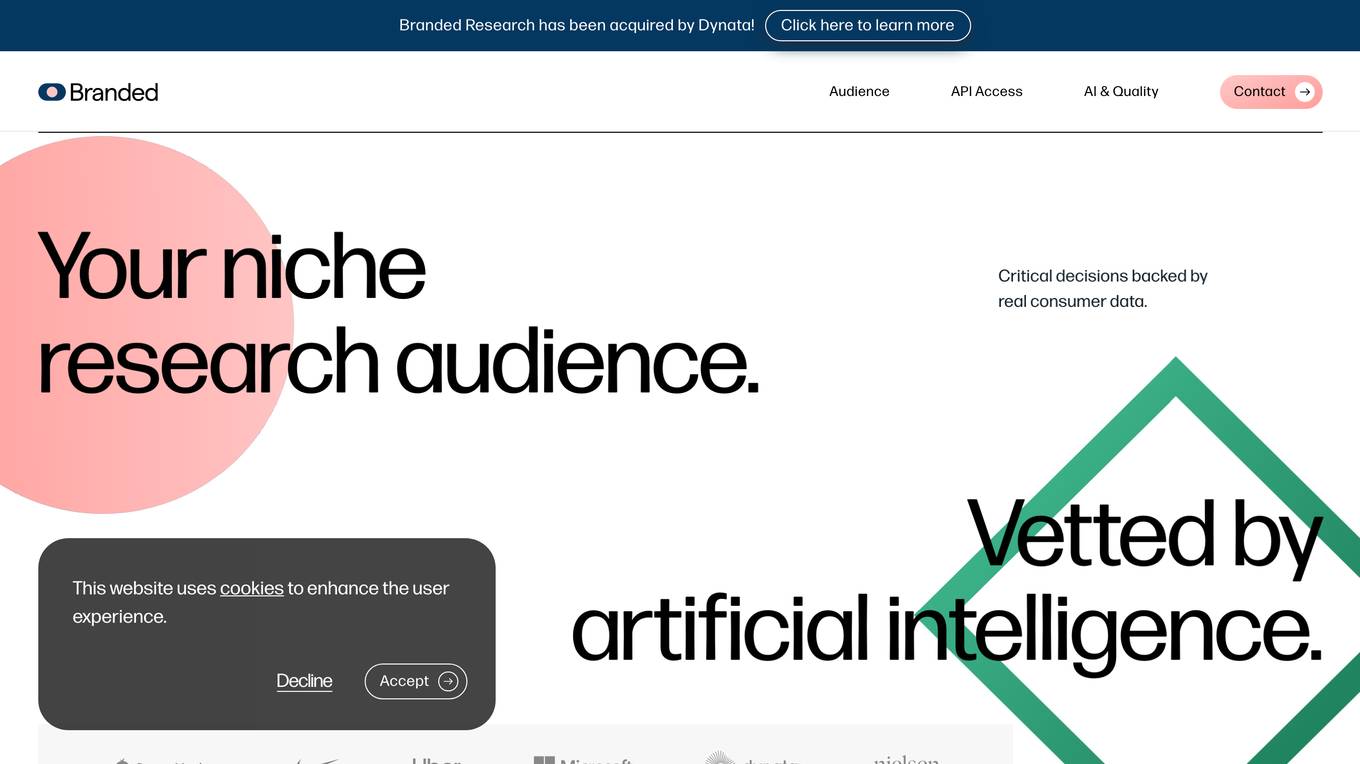
Branded Research
Branded Research, acquired by Dynata, provides access to AI-verified audience insights. It offers a range of research methods, including surveys, webcam studies, and emotional AI. With its advanced algorithms and extensive profiling, Branded helps businesses connect with their target audience and gain valuable insights to drive innovation. The company serves various industries, including tech, consumer goods, healthcare, and research agencies.
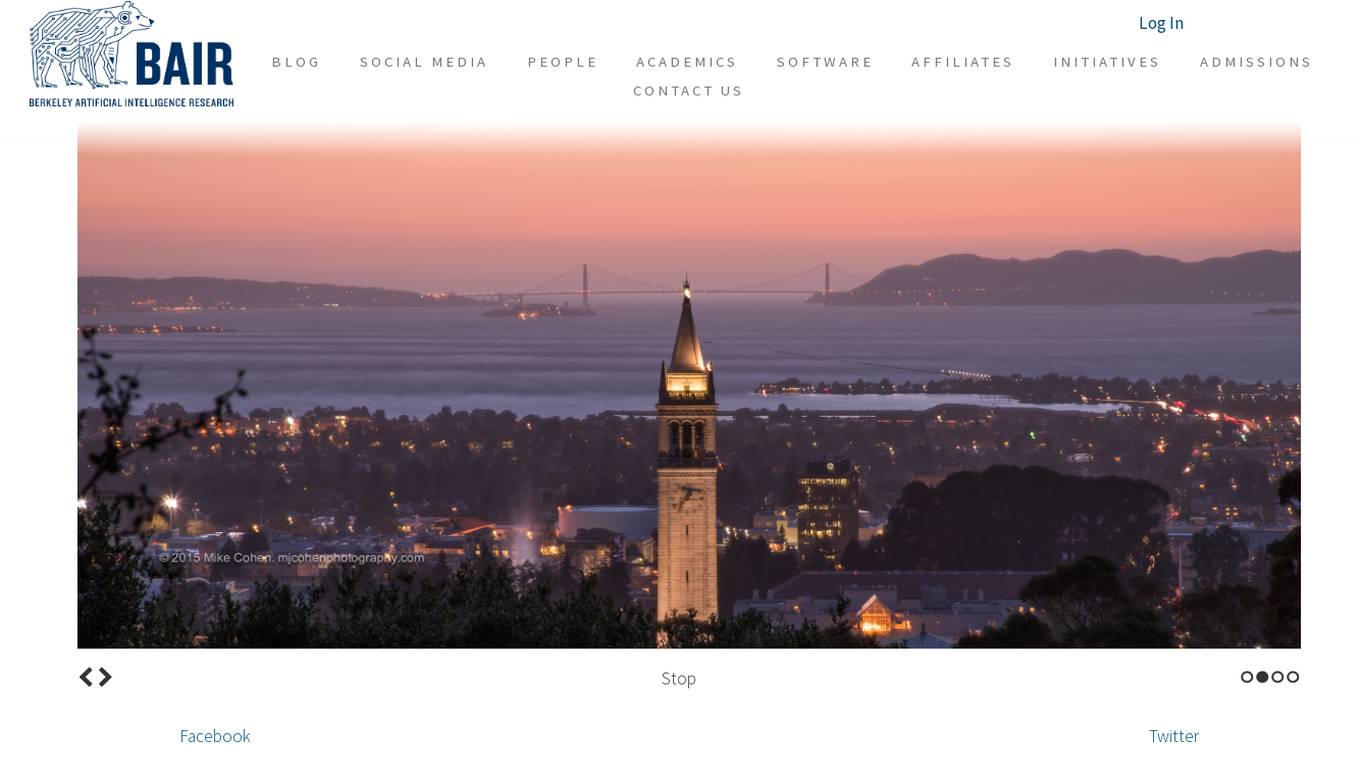
Berkeley Artificial Intelligence Research (BAIR) Lab
The Berkeley Artificial Intelligence Research (BAIR) Lab is a renowned research lab at UC Berkeley focusing on computer vision, machine learning, natural language processing, planning, control, and robotics. With over 50 faculty members and 300 graduate students, BAIR conducts research on fundamental advances in AI and interdisciplinary themes like multi-modal deep learning and human-compatible AI.

AIM Research
AIM Research is a leading platform providing insights and analysis on the Artificial Intelligence industry. The website offers a comprehensive range of resources, including research reports, event coverage, news articles, and expert opinions. AIM Research focuses on highlighting the latest trends, innovations, and key players in the AI sector, catering to professionals, researchers, and enthusiasts seeking in-depth knowledge and understanding of AI technologies and applications.
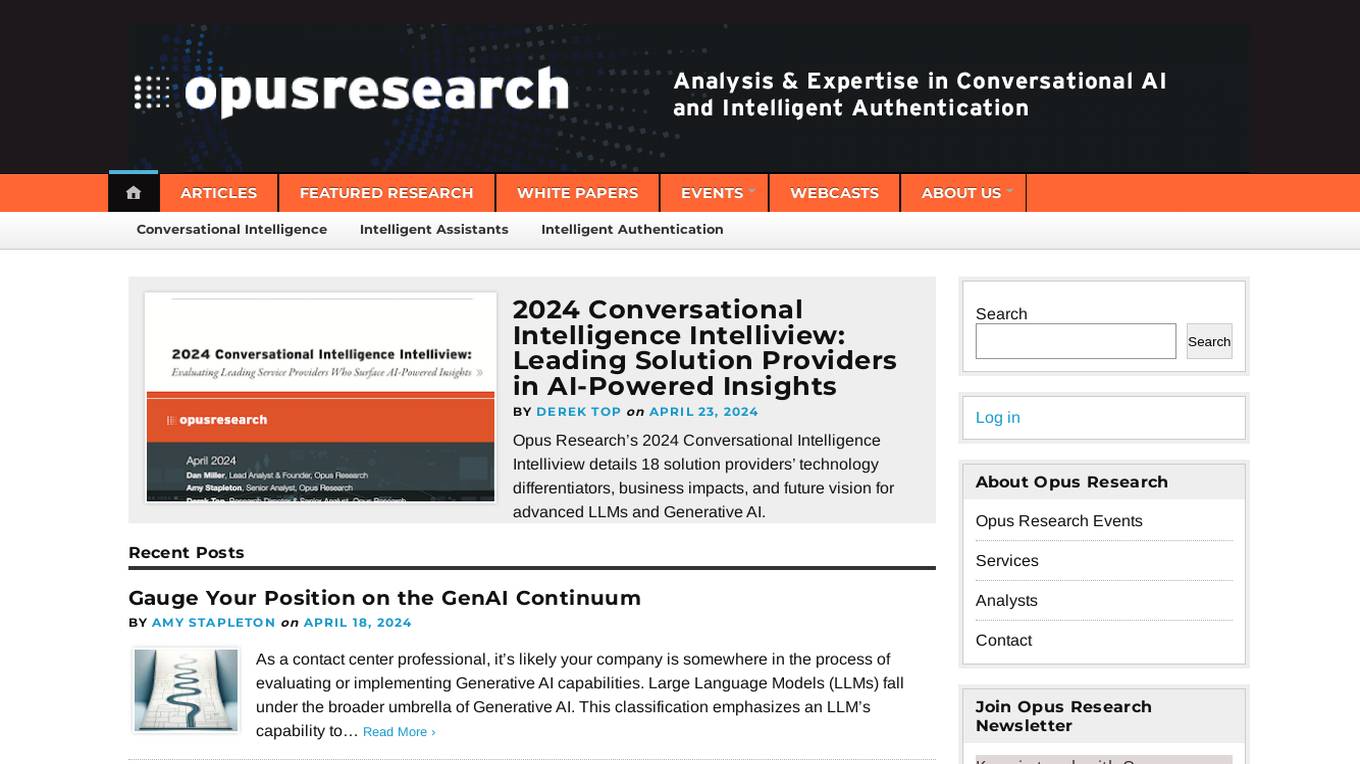
Opus Research
Opus Research is a leading provider of market research, consulting, and advisory services to the global digital communications and collaboration sectors. The company's research focuses on the convergence of emerging technologies, including artificial intelligence (AI), machine learning (ML), and natural language processing (NLP), with the communications and collaboration industries.

Competitor Research
Competitor Research is an AI-powered tool that helps businesses analyze and understand their competitors. It provides a comprehensive research report on direct, indirect, substitute, and potential competitors, including insights on search traffic, keywords, backlinks, target audience, pricing strategy, website performance, and customer engagement. The tool uses AI to save time and deliver actionable insights to help businesses grow and stay ahead of the competition.
0 - Open Source AI Tools
20 - OpenAI Gpts

Legal Navigator
A comprehensive Nationwide database of law firms and lawyers, including specialties, locations, and contact information with live URLs.
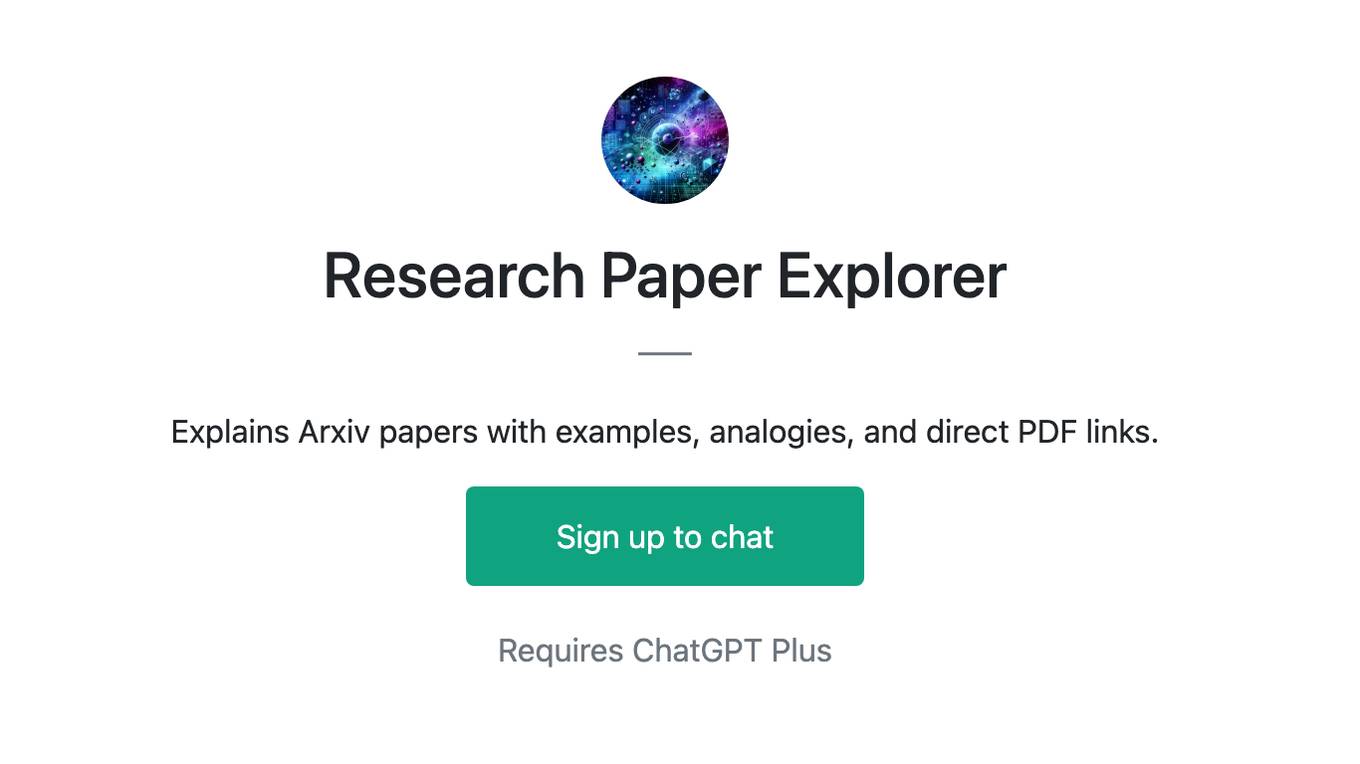
Research Paper Explorer
Explains Arxiv papers with examples, analogies, and direct PDF links.
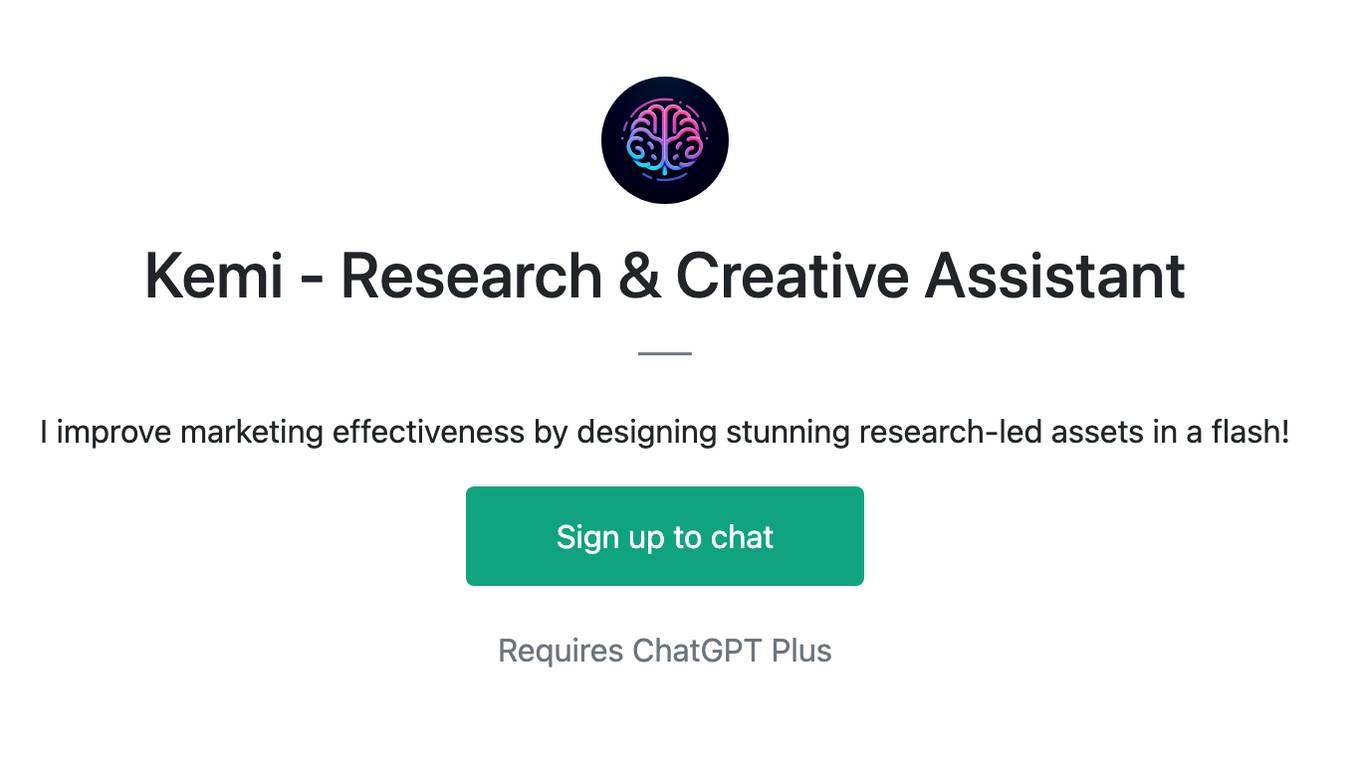
Kemi - Research & Creative Assistant
I improve marketing effectiveness by designing stunning research-led assets in a flash!
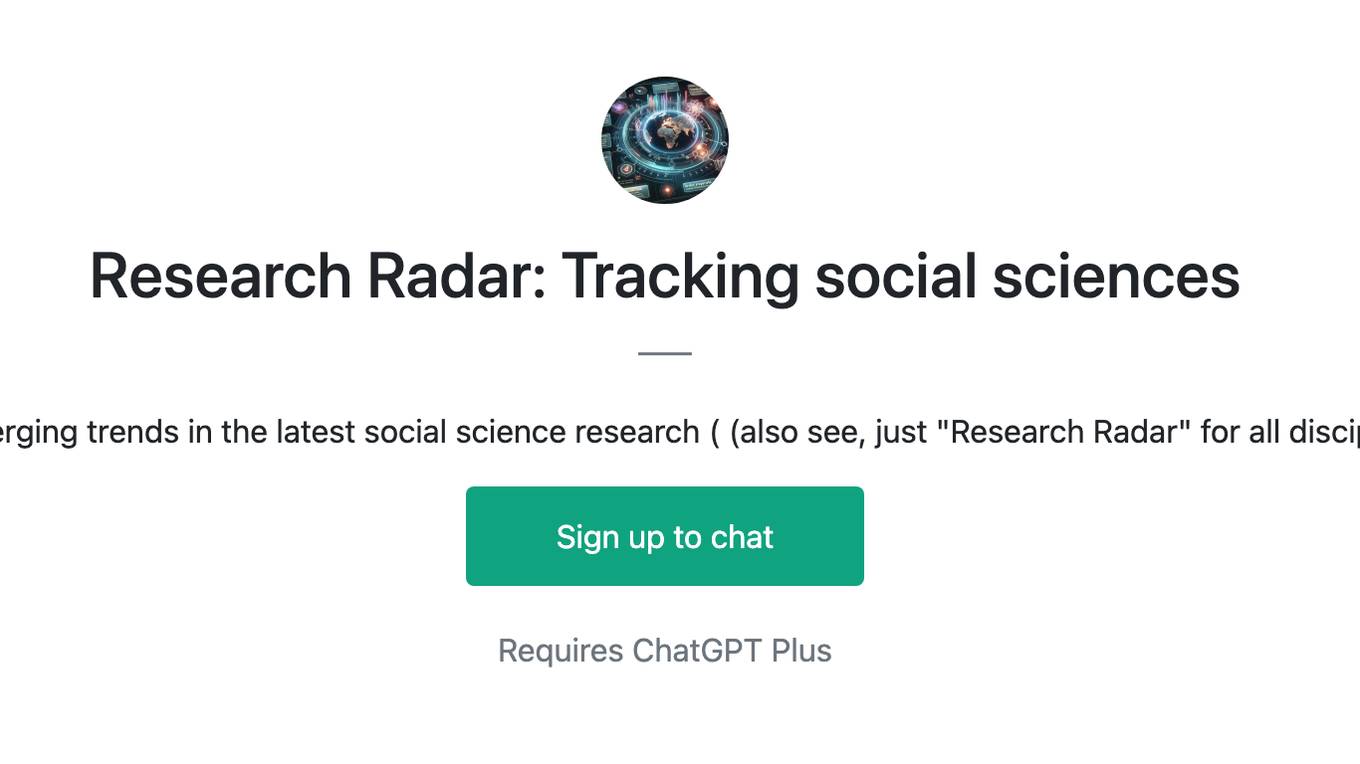
Research Radar: Tracking social sciences
Spot emerging trends in the latest social science research ( (also see, just "Research Radar" for all disciplines))
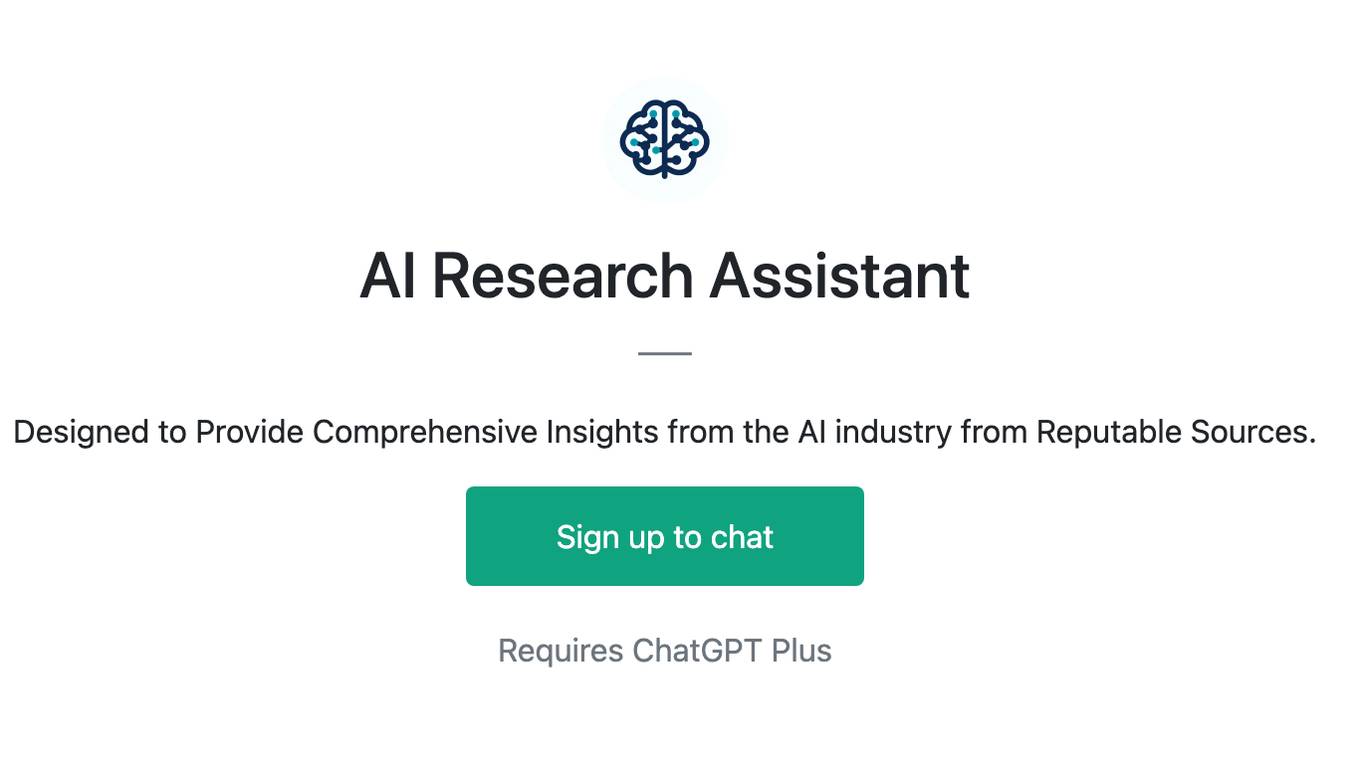
AI Research Assistant
Designed to Provide Comprehensive Insights from the AI industry from Reputable Sources.

Research Proposal Maker
Research Proposal Assistant Pro is designed to provide tailored assistance in research writing.
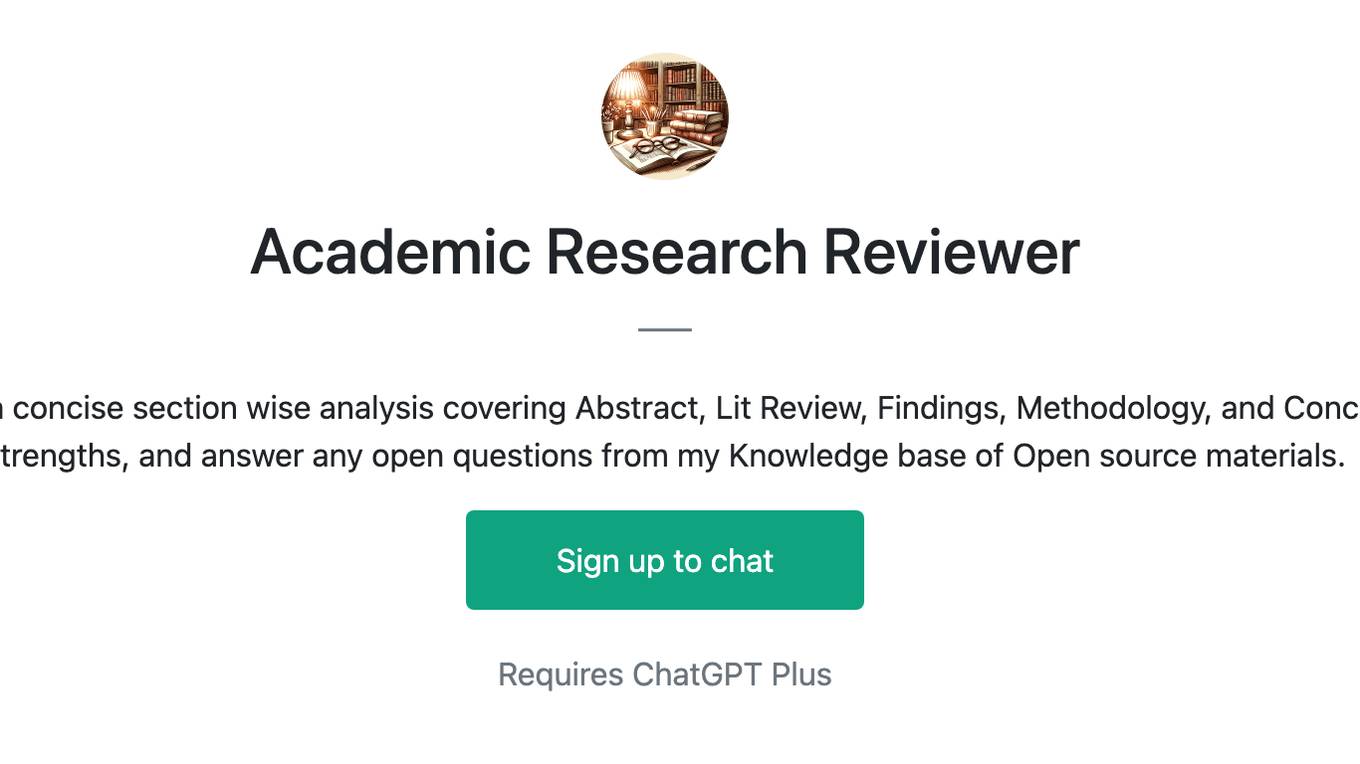
Academic Research Reviewer
Upon uploading a research paper, I provide a concise section wise analysis covering Abstract, Lit Review, Findings, Methodology, and Conclusion. I also critique the work, highlight its strengths, and answer any open questions from my Knowledge base of Open source materials.

Scientific Research Digest
Find and summarize recent papers in biology, chemistry, and biomedical sciences.



